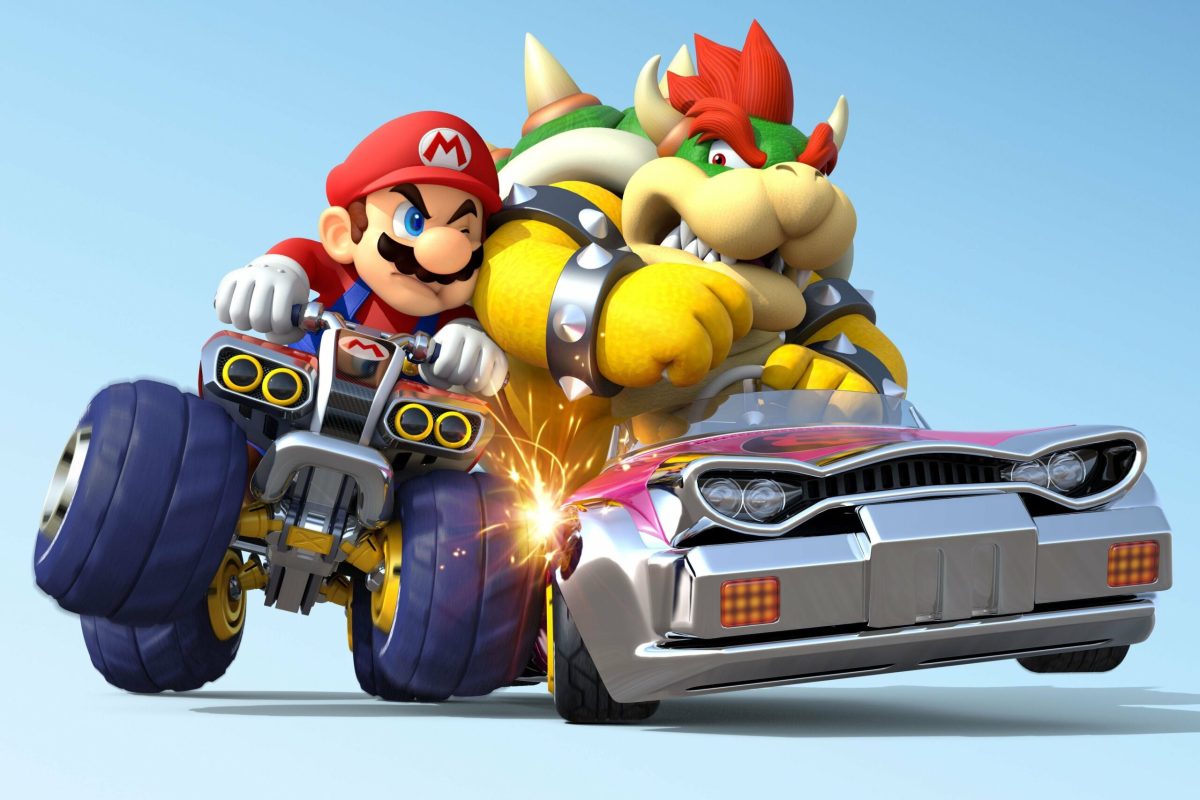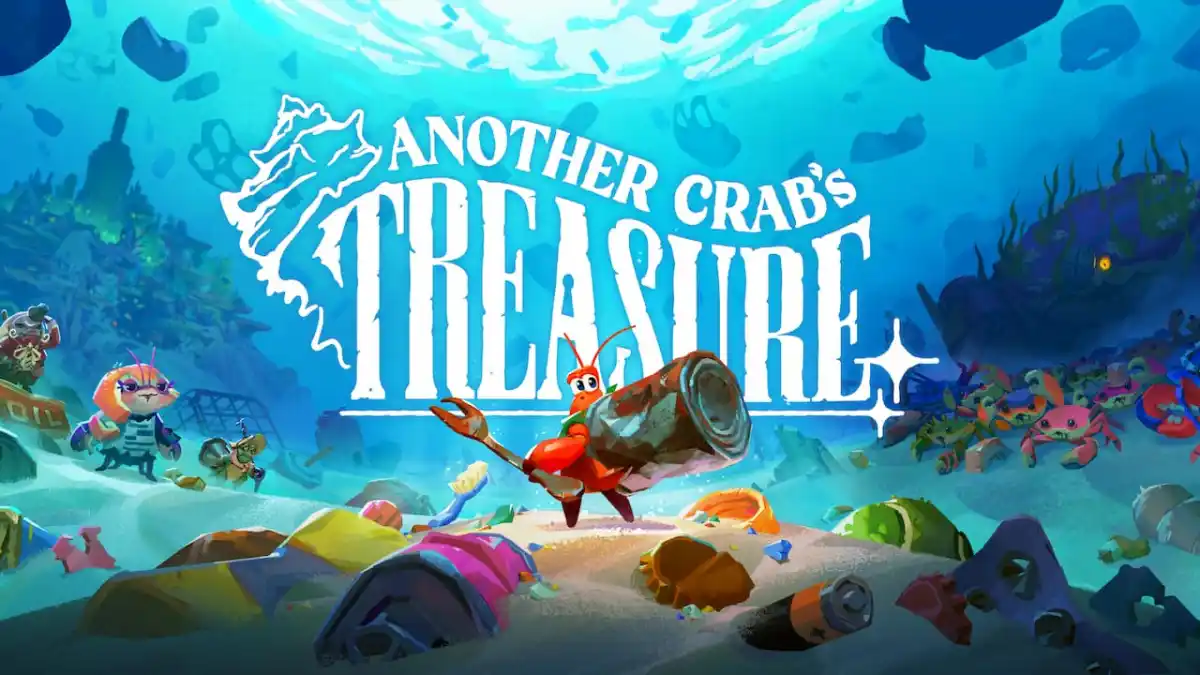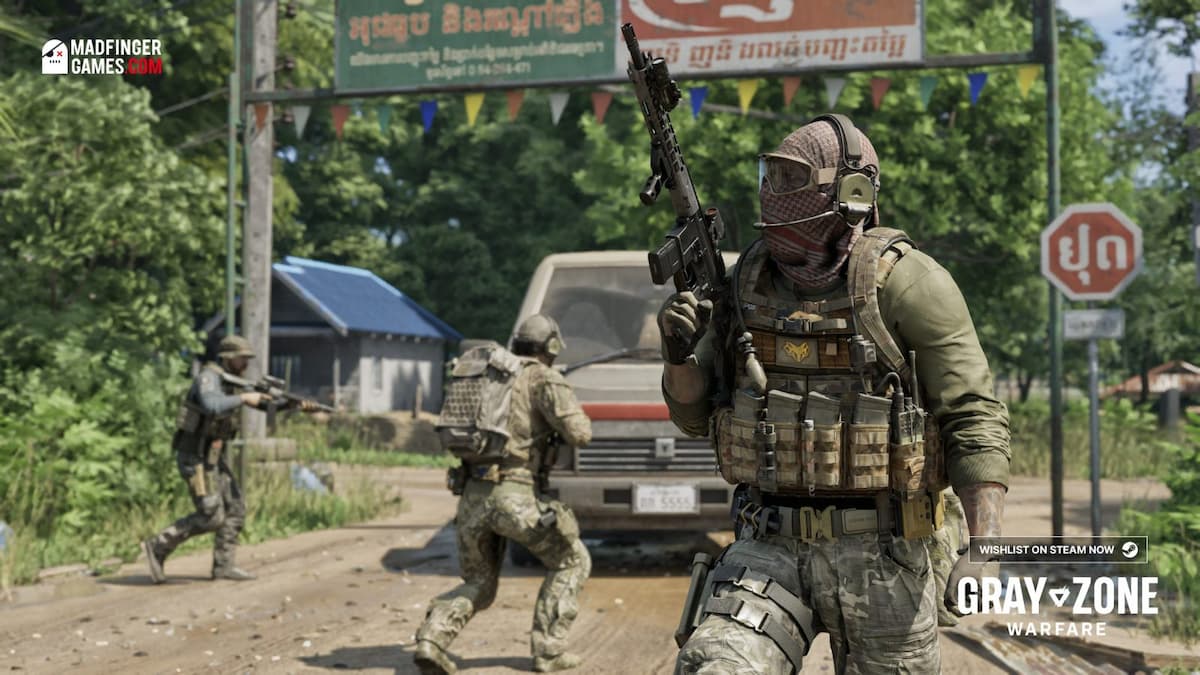Not every game needs blue shells
[Scrustle has some prime words to share about the surprisingly diverse racing genre. Sims, arcade racers, and everything in between, it seems like there is a lot of contention in rating racing games when they’re not just racing games but realistic racers, goofy kart racers, and even more beyond the horizon. Don’t you have a genre you love but is misunderstood? Start your own blog today! ~Strider]
The Preface
This is a topic that I’ve been debating writing about for a very long time now, but was always hesitant to get around to. I’ve never been sure that Destructoid is the right audience for this kind of thing, and despite my admittedly inflammatory title, I don’t intend to be confrontational about this. But I keep seeing these same ill-informed opinions showing up all over the various different places I visit, not just Dtoid, so at one point I just had to say enough was enough. I don’t expect to make many friends with this blog, and I’m doubtful it’ll even be read by a lot of the people I want to send the message to, but what I’m trying to say here isn’t something negative. I want to promote a better understanding of this genre. I don’t want to tell anyone they’re wrong for liking or disliking any particular game, but I want people to have at least some level of respect for the genre as a whole.
The False Dichotomy
Before I talk about specific points, I want to address what the main source of these problems are. It all stems from a false dichotomy that people apply to the different subgenres of racing games. You’ll commonly hear that racing games are either arcade or simulation racers, and that all racing games fit in to one of these two categories. This is fallacious, and a massive oversimplification of what racing games are. But what exactly do these words mean?
As I see it, these definitions are based around how a game treats its handling model. Simulation racers are based around a handling model that is supposed to be an accurate as possible replication of real-world physics and car handling. In other words, cars drive like they do in the real world. How a car behaves in real life under certain circumstances should be replicated as closely as possible in the game under the same circumstances.
 One of the greatest racing games of all time, regardless of subgenre.
One of the greatest racing games of all time, regardless of subgenre.
Arcade racers, on the other hand, are games which intentionally avoid this. They’re not the opposite in a literal sense, but they place their handling emphasis on the “rule of cool.” It’s highly stylized, over-the-top, reality be damned. Generally the less concerned with realistic physics a game is, the more of an arcade racer it is, which brings me on to why exactly this dichotomy is such a poor oversimplification.
These two categories are not mutually exclusive boxes that can be applied to a game without qualification. Racing games, much like with many other genres, are a spectrum. A sliding scale between these two extremes. Where exactly one category ends and another starts is not a hard and fast distinction. We can only really say the area of the spectrum a racing game may fall. And this is what creates such confusion and unnecessary ire about any particular game. I see so many people neglect to understand this spectrum, and place an arbitrary, and often quite wrong, point to make the distinction between sim and arcade games. To demonstrate this further, I will talk about some specific examples from the diagram below.
 Totally official guide.
Totally official guide.
The Simulators
At this far end of the scale we see several PC exclusive sims, with the likes of iRacing and rFactor. These games are intended to be the most realistic racers you can possibly get as a consumer product. They are completely uncompromising, and make no concessions to being anything other than what they are. They’re usually designed to be quite unforgiving, and basically require a steering wheel to be able to play.
Next you have the console sims, with the Forza Motorsport and Gran Turismo games. These are still trying to be as realistic as possible, but make a few concessions that the PC sims don’t. They generally have slightly more forgiving handling, as they are designed to be playable on a standard controller, and are designed to be a bit more approachable so that they are more enjoyable to a wider audience. They also sometimes have some slight technical limitations due to being constrained to console hardware. Despite this, they are still very firmly trying to provide a realistic handling model. They’re realistic enough that professional race drivers can and do use them to practice their skills.
 This one tried to split the difference between PC and console sims.
This one tried to split the difference between PC and console sims.
The Middle Ground
Here is where we have racing games that don’t really fit in to either of the sim or arcade categories cleanly, and can have quite a wide variance in how they approach their handling models. I like to think of these games as going for a believable handling model, or one based on Hollywood physics. They’re not trying to be realistic, but they are trying to provide an experience that seems like it could happen, based on general preconceived notions about how cars behave that is influenced by media at large.
On the side closer to the sims, we have the likes of the Forza Horizon games and the Need for Speed Shift games. These games could be described as sims in a sense, but their primary focus is not on realism. While the Horizon games retain the same core physics and handling system as the Motorsport games, they have more concessions made to them which take the focus away from realism. It’s a game that’s trying to have its cake and eat it, by retaining the feel of its sister series, but in a way that places an emphasis on fun and approachability, rather that only making concessions based on practicality.
 A more laid-back Forza.
A more laid-back Forza.
Similarly, the Shift games are ones that have a sim-like handling feel, but place more emphasis on the experience of driving real race cars, rather than exactly replicating their behavior. While true sim games do provide a similar kind of experience, they do so through the emergent properties of the physics engine, while the Shift games try to realize that same feeling through special effects layered on top, like the sound and visual design. It’s trying to provide a similar experience, but in a way that’s more approachable and artistically apparent.
On the side closer to arcade games, but still in this middle ground, we see the other Need for Speed games. While various different entries in this series waver quite a lot on this scale, with several sitting more firmly in the arcade category, on average they sit at about this point. The most recent game in the series (the reboot simply called Need for Speed) also happens to sit at around this mid-point of the range that the series covers. In this game, cars do not behave realistically at all. Their acceleration, grip levels, drifting characteristics, and ability to fly through the air and survive crashes are all very arcade-like. Yet the general speeds you go at in the game, the size of your turning circle, and how different cars compare to each other, are somewhat believable. It’s an attempt to lend a sort of grounded feel, while still allowing you to easily pull of ludicrous feats. Most other games that sit at this level on the spectrum do a similar thing, and most modern racing games tend to go for something in this area. Much like with Forza Horizon and the Shift games, this is so close to an arcade racer it might as well be regarded as one. It is only one small step away from being a true arcade racer, but with the distinction between the two being as unclear as it is, that matters little.
 If only it played as good as it looks.
If only it played as good as it looks.
Found in between these examples, and closer to the middle of the spectrum, you will find games like Project Gotham Racing and Race Driver: GRID. These are games that take some influence from both arcade and sim racers, and so aren’t really close enough to either to say that they belong anywhere near either category. Project Gotham for example has some sim elements in that cars can go about as fast as they do in reality, but have much more responsive and grippy handling. Yet they also behave in a way that provides more nuance to their handling model than something with a more arcade influence. Cars can oversteer and understeer to varying degrees, which can be controlled in a way similar to how sims allow, although it does so in a way that is far more forgiving.
Before I deal with arcade games though, I want to address that sometimes this middle category is recognized. You’ll sometimes hear people say that some game falls in the middle of sim and arcade, and is instead in between the two. While this is better than making the mistake of only recognizing sim and arcade, there are often problems with this perspective too. While it’s not always the case, I often hear people frame this middle ground as yet another mutually exclusive category, and making another host of ill-informed judgements about games that fit there. Either people will say that games that land here are confused and don’t know what they’re trying to be, or that some elusive point in this middle ground is some kind of Holy Grail that all racing games should try to achieve. These are obviously both still oversimplifications and misunderstandings of what these games are.
The Arcade Games
Here we have the likes of Burnout and Ridge Racer. As mentioned before, these are games that take no heed to realism or believability. They’re based around being as flashy and exciting as possible, but also being very approachable in a pick-up-and-play kind of way. Not that these games are simple and shallow, but they are meant to be fun without any practice needed, although they can still be designed with a big potential for further mastery. Cars behave in a way that you would only see in a game, or perhaps in a cartoon, and don’t attempt to have that grounded tone that other less arcade-focused racers have.
Burnout (and Ridge Racer) is the quintessential archetype of this. Cars accelerate extremely rapidly, and can reach insane speeds. Grip is almost infinite, with a tight and responsive turning circle. Drifts are easily executed, and can even make you faster. Cars crash and bash in to each other like toys, and gravity seems to have little negative effect on them. Inexplicable boost mechanics also lend another layer of disregard for reality. Audio-visual presentation goes the extra mile to convey all of this in the most stylish way too, accuracy be damned.
 Seriously, Burnout Paradise is amazing.
Seriously, Burnout Paradise is amazing.
Right at the most extreme end of arcade racers, we find the likes of F-Zero. This is a game that goes so far from realism that it doesn’t even use cars. Your vehicles defy physics in a way that would surely give Einstein a nosebleed, and have you traveling at speeds that are laughable in their absurdity. It also takes the presentation style seen in things like Burnout and turns it up to 11. Or maybe 12, since Burnout is already at 11.
The Stupidity
Now these explanations are all fine and dandy, but it’s not really people getting this stuff wrong which I find the infuriating in itself. Most of these definitions have a certain level of subjectivity to them, with where you draw the line between one category and the next being not that important. What really riles my feathers is the kind of stuff people say when they don’t understand that these different categories exist, or why they exist. These opinions come in many different forms too, so I’ll be talking about several different opposing perspectives.
The first opinion I want to talk about is among the most irritating, and is the one that actually prompted me to put this blog together. That is the opinion that there are no arcade racing games anymore, and that everything in a sim now. As I have spent most of this blog so far explaining, this is blatantly untrue, and is a massive oversimplification of the genre, and shows a complete lack of understanding of how cars behave or what defines a sim.
 Indie games pick up the slack of a neglectful AAA industry.
Indie games pick up the slack of a neglectful AAA industry.
However, while this opinion is often expressed with an odious air of contempt, I can somewhat sympathize with. It is true that there is a dire lack of true arcade racers being released in recent times. We are sorely lacking of games that fit in to that third of the spectrum. And as a fan of racing games as a whole, I lament this too. I want more games like this. I miss Burnout sorely. It’s the reason I even got in to racing games in the first place. My desire to see more games like this is the reason I backed the Drift Stage Kickstarter, and am looking forward to the likes of ’90s Arcade Racer and Power Drive 2000.
So I understand this frustration. A major sector of this genre is being underserved, and missing out on a whole lot of potential. But that’s no reason to sneer at all other racing games, especially when you don’t even understand what you’re talking about. Because when we look at the racing genre in knowledge of the wider spectrum, sim games aren’t really that common either. On consoles in particular, there have only really been barely a handful this generation so far, with the PS4 only really getting one with Project Cars. And just because something isn’t completely over-the-top, that doesn’t make it a sim. It doesn’t even necessarily mean it’s not an arcade racer. Things like real tracks or real cars do not a sim make. Some of the most hardcore sims out there don’t even use real cars or tracks, as it can be hard to pay for the licenses for this stuff when you’re a small studio making a very niche game.
 Despite a lack of licensed content, Live For Speed is extremely moddable.
Despite a lack of licensed content, Live For Speed is extremely moddable.
The next one I want to talk about is perhaps less common, but is more or less the reverse of the previous complaint. As most people reading this may not know, the fanbases for sim racers tend to be rather small and insular. These are not necessarily people who do not play other games, but the communities that grow up around them do tend to be very dedicated to that one particular game, given the demanding nature of it. As such, a sort of echo chamber tends to develop in these fanbases, with certain opinions becoming generally accepted wisdom, despite sometimes also being rather ill-informed.
The one in particular that gets on my nerves is this attitude that arcade is a dirty word. There’s an elitism that has developed, where the more hardcore your sim is, the better it is, and the better player you are. It’s kind of like the distinction of hardcore and casual gamers used in the more general gaming fandom. The difference is that while that attitude is usually not taken seriously as it’s openly mocked, the insular nature of sim racer communities means that there’s no-one to call people out on their bullshit, and this attitude gets passed around. PC sim players look down on console sim players, and there’s even a section of the Forza community that looks down on the Horizon spin-offs, calling them “casual arcade games” that are supposedly an insult to the Forza name.
This attitude is just gross, and done with no sense of self-awareness, leading to some pretty idiotic opinions become relatively widely accepted. And it of course yet again ignores the idea of the spectrum. Arbitrarily placing the distinction between sim and arcade massively too far over the other side compared to the last attitude I addressed. Claiming that anything that isn’t the most super hardcore sim, without such-and-such irrelevant feature, cannot be a sim, and is therefore trash. People like this will often, when presented with a new racing game, first want to know if it’s an arcade game or not, by their own unreasonable standards. If they find it doesn’t meet up with their definition of a sim, then they totally disregard it, not even giving it a chance to see that there might be something good about it.
 Pictured: superior being.
Pictured: superior being.
Next, let’s flip back to the other side of these opinions, to take a look at one which shares something with both of these two previous points. This is the argument that all sim racers are boring and soulless. That they have no personality, and that there’s no reason to play them since driving a real car is a thing that anyone with a license can do.
Much like with the first opinion, this shows a massive lack of understanding about sims and cars. While sims can appear to be bland and sterile on the surface, they usually have a lot going on underneath. The immediate presentation may not grab your attention instantly, but these games have a huge amount of depth and excitement when it comes to their handling models. That’s what these games are about. Sadly that can mean that some examples of this genre neglect other aspects that are more obvious to the general gamer, but the handling model is always the top priority of these games, and for good reason.
In these games the cars all handle in drastically different ways, and require you to understand them to get the most out of them. That’s where the personality comes from. It’s the cars. It’s learning how to handle their grip and inertia. Managing throttle and brakes with precision, and guiding your car through that apex as fast as you can. Or maybe it can be about messing around with a car. Throwing it about and pushing it beyond the limits, and testing where they are. This is why drifting has become such a big thing in many of these games, because it’s not just about looking cool, it’s about being in tune with your car and the physics of the game. You have to put in the work to make it happen.
 Back when I was more involved in the Forza community.
Back when I was more involved in the Forza community.
That is what so many people miss when they disregard sim racers. It’s because of something that they don’t even acknowledge exists. I can only assume that most of these people don’t play these games with the assists turned off, as that’s how these games really shine. Not that I want to stigmatize anyone for playing these games wrong. Play a game how you like. In fact, the range of assist options is one of the things that makes Forza so great. It gives you huge customization in how you want the game to play. But you can’t disregard this aspect of these games without even understanding what it is. While assists can make a game easier to get to grips with, it does so by basically removing a large part of the gameplay.
Similarly, the argument about why you would want to drive in a realistic game when you can drive in the real world is completely missing this point. I mean, do I even really need to explain why this one is fallacious? It’s like asking why anyone would ever want to play a shooter when they can join the army and patrol around a war-torn Middle Eastern town dodging IEDs, or why anyone would want to play a medieval fantasy game when they can instead join a technophobic cult out in the middle of the desert with no electricity and running water. Unless all these people making this complaint are secretly billionaire race drivers in their day job, which I somehow doubt, it makes absolutely zero sense, and takes only a second to work out why, whether you’re in to racing games or not. Your daily commute through congested traffic in your everyday hatchback is nothing like screaming flat out through Eau Rouge at Spa in a supercar at 150mph, right on the knife edge of control. As if that even needed to be said.


Pictured: the same thing, allegedly.
The Message
At the end of all this, what I really want to get across is that all different types of racing games are great for different reasons. Just because a game is in a certain subgenre, that doesn’t make it good or bad. They each serve a different purpose, and it’s okay if you’re not interested in any particular one of those, but to shit on huge swathes of games with such ignorance really makes a person look like a dick. So don’t be that guy. Play what you love, try to understand what you don’t, and be excellent to each other.




